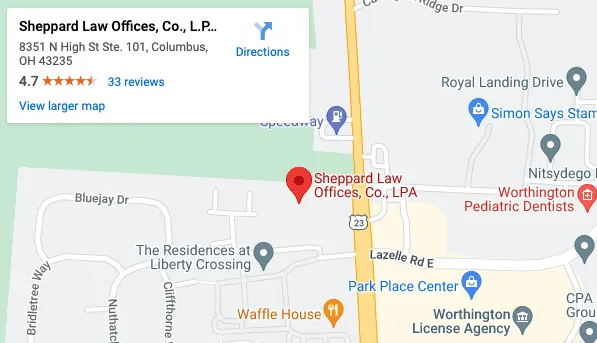Filing for bankruptcy can be a difficult decision. Still, it can also be the best way to get out of overwhelming debt and regain control of your finances. One of the most common types of bankruptcy is Chapter 7, which allows individuals and businesses to liquidate assets and discharge certain types of unsecured debt, such as credit card debt and medical bills. But before you can file for Chapter 7, you must first determine if you are eligible. The process of filing for bankruptcy can be complex, but with the help of a skilled and experienced bankruptcy attorney, you can navigate the process with confidence.
Bankruptcy Attorneys have the knowledge and experience to guide you through the process and help you understand your rights and options under the bankruptcy code. Whether you are considering filing for Chapter 7 or Chapter 13 bankruptcy, or exploring alternatives like debt settlement, we will work with you to find the best solution for your unique situation.
Why do I need a Chapter 7 Bankruptcy Attorney in Ohio?
Here are some of the key reasons why you need a Chapter 7 bankruptcy attorney
- Experience in bankruptcy: Bankruptcy attorneys are well-versed in the bankruptcy code, and can help you navigate the process with confidence. Bankruptcy attorneys have experience handling bankruptcy cases and can help you avoid common pitfalls and mistakes.
- Knowledge of alternatives to Chapter 7: Bankruptcy attorneys are familiar with all the alternatives to Chapter 7 and debt relief options available and can help you find the best solution for your needs.
- Protecting your assets: Bankruptcy attorneys have a thorough understanding of the exemptions available in Ohio and can help you maximize the protection of your assets.
- Representation in court: Bankruptcy attorneys are experienced in representing clients in court, and can help you feel confident and prepared for each step of the process.
Bankruptcy attorneys have the knowledge and experience to help you understand the bankruptcy code, navigate the process, and find the best solution for your unique situation. With their years of experience, they can help you protect your assets, and represent you in court to ensure you get the best outcome possible. If you need assistance, contact us to schedule a consultation now!
Overview of Chapter 7 bankruptcy
Chapter 7 bankruptcy, also known as “liquidation” bankruptcy, is one of the most common types of bankruptcy in the United States. It allows individuals and businesses to liquidate assets and discharge certain types of unsecured debt, such as credit card debt and medical bills. If you’re considering filing for Chapter 7 bankruptcy in Columbus, Ohio, it’s important to understand the basics of the process and how it can help you achieve debt relief.
What is the Eligibility for Chapter 7 Bankruptcy?
The first step in determining Chapter 7 eligibility is to take the means test. The means test compares your current monthly income to the median income for a household of your size in your state. If your income is below the median, you are generally eligible to file for Chapter 7. However, even if your income is above the median, you may still be eligible if you can prove that you have enough expenses to justify it. The means test takes into account your living expenses such as housing, food, transportation, and other necessary expenses.
Another important factor in determining Chapter 7 eligibility is the value of your assets. While some assets are protected by bankruptcy exemptions, others may be liquidated by the bankruptcy trustee to pay off creditors. However, if you have minimal assets and primarily unsecured debt, you will likely be able to keep most of your property and still be eligible for Chapter 7 bankruptcy.
It’s also worth noting that certain types of debt, such as student loans and taxes, are not dischargeable in a Chapter 7 bankruptcy case. If these types of debt make up a significant portion of your debt, Chapter 13 bankruptcy may be a better option for you.
Furthermore, the bankruptcy code has a provision that allows the court to dismiss a case if the debtor has had a previous bankruptcy discharge within the past eight years or if the debtor had a previous case dismissed for certain reasons.
What are the Pros and Cons of Chapter 7 Bankruptcy?
When facing overwhelming debt, filing for Chapter 7 bankruptcy may be a viable option for achieving debt relief. However, before filing for Chapter 7 bankruptcy, it’s important to understand the pros and cons of the process.
Pros:
- Debt Relief: One of the main benefits of Chapter 7 bankruptcy is the immediate relief it provides from overwhelming debt. Once your case is filed, an automatic stay goes into effect, which stops all collection actions against you, including wage garnishments, repossessions, and foreclosures.
- Discharge of Unsecured Debt: After your assets have been liquidated and your creditors have been paid, the bankruptcy court will grant you a discharge of your remaining unsecured debt. This means that you will no longer be responsible for paying these debts, and creditors will no longer be able to collect on them.
- Fresh Start: Filing for Chapter 7 bankruptcy gives you the opportunity to start over financially and move on with your life without the burden of overwhelming debt.
- Asset Protection: Certain types of assets are protected by bankruptcy exemptions, and you will be able to keep these assets even if they are liquidated. Common exemptions include your primary residence, personal property, and retirement accounts.
Cons:
- Loss of Assets: One of the main downsides of Chapter 7 bankruptcy is that you may have to liquidate some of your assets to pay off creditors. This may include valuable possessions such as a second home, rental property, or a valuable collection.
- Credit Score: Filing for Chapter 7 bankruptcy will have a negative impact on your credit score, and it will also stay on your credit report for up to 10 years. This can make it difficult to obtain credit or loans in the future.
- Certain Debts are not Dischargeable: Certain types of debt, such as student loans, taxes, and child support, are not dischargeable in a Chapter 7 bankruptcy case. You will still be responsible for paying these debts after your case is over.
- Limited Eligibility: Not everyone is eligible to file for Chapter 7 bankruptcy. The means test is used to determine eligibility, and if your income is above the median for your state, you may not be able to file for Chapter 7. You will have to consider other alternatives, such as Chapter 13.
- Public Record: Bankruptcy is a matter of public record and it can be accessed by anyone, including potential employers, landlords, and creditors. Some people may feel embarrassed or ashamed about filing for bankruptcy and the public record aspect can be a concern.
Call our Chapter 7 Bankruptcy Lawyer in Columbus OH Now!
Chapter 7 bankruptcy can provide significant debt relief for those who are struggling with unsecured debt, such as credit card debt, medical bills, and personal loans. However, it’s important to understand the pros and cons of filing for Chapter 7 and the eligibility criteria before making a decision. Consulting with a bankruptcy attorney can help you understand the process and evaluate whether Chapter 7 bankruptcy is the best option for you.
If you are considering filing for Chapter 7 bankruptcy in Columbus, Ohio, Sheppard Law Offices can provide you with a free consultation and help you determine if you are eligible for Chapter 7 bankruptcy and if it is the best option for you. We can guide you through the process and represent you in court to ensure you get the best outcome possible. Break free from debt today with the help of Sheppard Law Offices and have a fresh financial start.


